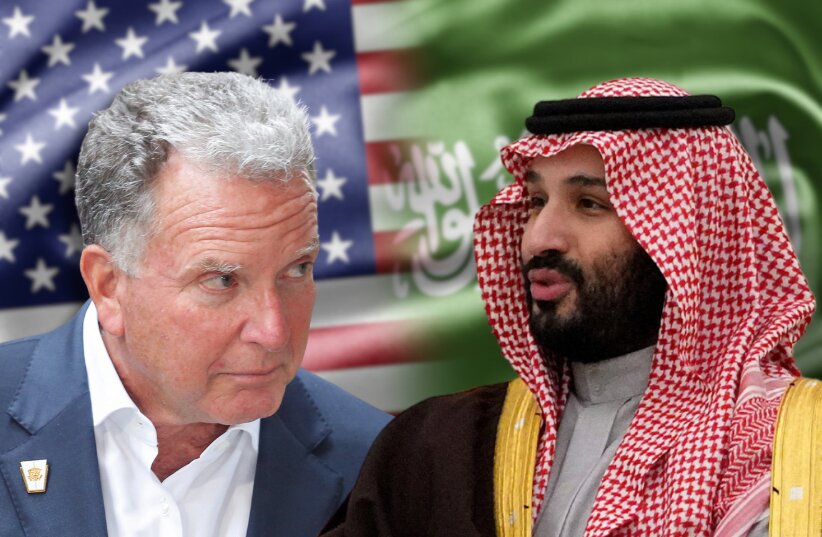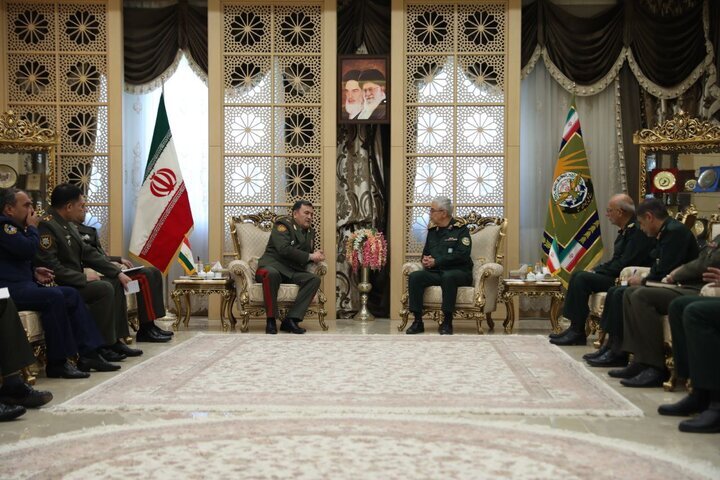Breaking Barriers: Atlantic Council Reveals Israeli-Saudi Normalization is Within Reach!
In a significant diplomatic maneuver, Israeli Prime Minister Benjamin Netanyahu is set to discuss a potential normalization of relations between Israel and Saudi Arabia with US President Donald Trump. This high-stakes meeting at the White House is aimed at achieving a deal that could bolster US national security interests in the region. While the prospect is promising, it requires a well-thought-out strategy rather than a rushed approach in the early days of Trump’s term.
Several crucial conditions must be met to facilitate this groundbreaking agreement:
- Gaza Ceasefire: The ceasefire in Gaza must be upheld and advance to its second phase. Currently, the first phase involves the release of thirty-three Israeli hostages and a substantial influx of humanitarian aid into Gaza. By early March, if negotiations are successful, the second phase aims to secure the release of the remaining Israeli hostages.
- Israeli Coalition Dynamics: Netanyahu’s coalition is under strain, especially after losing a far-right partner, National Security Minister Itamar Ben Gvir. Another potential defector, Finance Minister Bezalel Smotrich, poses a risk to Netanyahu’s government if the second phase of the hostage deal proceeds. However, polls reveal that 73% of the Israeli public supports moving forward with the agreement. Trump is adamant that Netanyahu must deliver on these expectations.
- Reconstruction in Gaza: Initiating reconstruction efforts in Gaza and establishing a credible pathway toward Palestinian statehood in the West Bank and Gaza are essential. Saudi Crown Prince Mohammed bin Salman (MBS) has indicated that these are prerequisites for normalization.
- Stability Concerns: MBS faces challenges, especially after Trump raised the idea of evacuating Palestinians from Gaza, which many see as detrimental to Palestinian aspirations for statehood. Regional stability is crucial for MBS’s Vision 2030 plan, and such relocations could destabilize Egypt and Jordan, two key Arab allies.
The Israeli side also has challenges to navigate. The coalition heavily relies on factions that oppose Palestinian statehood, making it difficult to agree on a definition of statehood that would satisfy both MBS and the Israeli public. This will necessitate careful negotiations and significant security guarantees for Israel.
Furthermore, the ceasefire in Lebanon must remain intact, and Israel needs to withdraw its outposts from the Syrian Golan Heights. A stable Israeli-Lebanese border will foster a more secure environment for normalization efforts with Saudi Arabia.
Equally important is the need for Trump and MBS to reach a consensus on various bilateral agreements that would underpin the normalization process. Former US Secretary of State Antony Blinken outlined these agreements before leaving office, which include:
- A security treaty
- A defense cooperation agreement
- An energy agreement, including civil nuclear collaboration
- A trade and investment deal
Although these agreements were discussed during the Biden administration, they remain unfinished. Trump will need to review them, ensuring his support or proposing necessary modifications. The negotiations will likely involve tough discussions about US security guarantees, which are pivotal for Saudi Arabia, while also ensuring that Saudi commitments to align with the US over China remain firm. MBS’s potential investment of $600 billion in the US could further facilitate these discussions, especially if it includes major defense purchases such as F-15 aircraft.
Ultimately, Trump will need to present a US-Saudi security treaty to the Senate for ratification. Achieving the necessary two-thirds majority will require Democratic support, which could be challenging if Trump’s domestic policies alienate Democratic senators, making them reluctant to endorse an agreement that may lead to a Nobel Peace Prize for him.
All these components will require time to resolve, and it is unlikely they will align during Netanyahu’s upcoming visit to Washington, DC. A proposed early visit by Trump to Saudi Arabia could help advance discussions but may not be sufficient to finalize the deal.
Here’s a suggested sequence for Trump and Netanyahu to consider:
- Secure the second phase of the hostage deal. If Smotrich decides to exit the coalition, Netanyahu should consider calling a snap election. He could enter this election with significant advantages: all live Israeli hostages returned to their families and strong support from Trump, who remains popular in Israel.
- If Netanyahu presents the possibility of a Saudi normalization deal to Israeli voters, he stands a good chance of returning as Prime Minister, potentially forming a coalition with more centrist or less radical partners.
- The timing of the Israeli elections could also allow US-Saudi agreements to mature and give Trump the opportunity to develop a political strategy that keeps Democratic senators engaged for a treaty vote in late 2025.
While this strategic approach may risk losing time, particularly as Israeli elections and government formation can extend decision-making processes for several months, it is essential to recognize that a measured and realistic assessment of the political landscape is required to solidify this significant deal.






